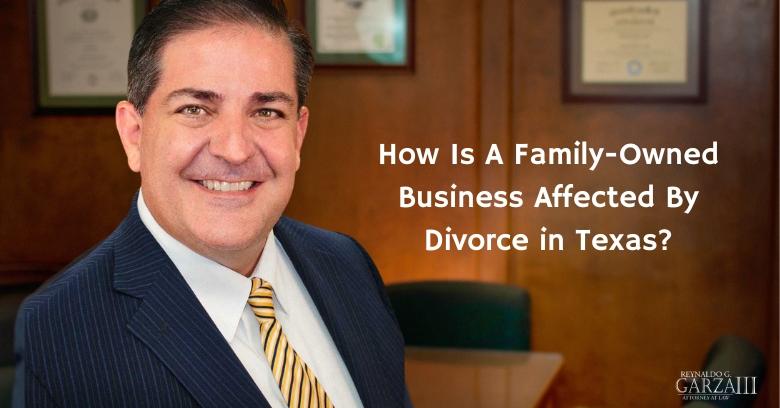Reynaldo Garza, III has practiced law as a criminal defense attorney in Brownsville, Texas for over twenty-two years. Working in this particular area of the law in Brownsville Texas has meant handling various kinds of demands that are unique to this area. The city of Brownsville is located next to the border of Mexico and many of the people accused of committing crimes in this area are citizens of Mexico and citizens or residents of the United States.
In addition to such a close location to an international border, Brownsville is located in the same county as the very popular resort community of South Padre Island, which is recognized as a popular destination for students during spring breaks. It has not been unusual at all for Trey to make court appearances on the same day for both foreign visitors who speak no English and visitors to South Padre Island who speak no Spanish.
Trey also has experience in the representation of his clients in State and Federal Courts throughout the state of Texas, which has given him the necessary experience to defend his clients against the criminal charges they may be facing.
For specific information about the different types of criminal defense cases that Trey has handled, click on one of the following links:
An attorney can get you out on bail . Bail is the amount of money that must be paid in order for someone to be released from jail before their trial . The court decides how much bail will be and the number of conditions that may be applied, such as no contact with potential witnesses or surrendering your passport.
Crimes are generally broken down into two types: misdemeanors and felonies . Misdemeanors are criminal acts that carry punishments of less than one year in prison , fines, or both . Felonies are criminal acts that carry out punishments of more than one year in prison if convicted. Note : Punishments vary from state to state.
The first thing to do is not say anything . The police are trying to gather evidence against you , so do not offer any information about the crime. Once you have spoken with an attorney, they will be able to provide you more guidance on what your next steps should be when facing criminal charges .
The first thing you should do is speak to a criminal defense attorney. They will help guide you through the entire arrest process . An attorney can help you understand your rights and what your next steps should be.
Self-defense, defense of property, insanity , and duress are just a few examples of defenses for manslaughter charges . For example, if someone committed involuntary manslaughter after purposefully shooting their firearm in public and someone died as a result, they cannot claim self-defense because they purposely used the weapon and it was not self-defense.
There are two degrees for murder charges in Texas.
- The first degree, or capital offense , is when the accused intended to cause serious bodily injury that resulted in death or intended to commit a felony that resulted in death, while knowing that the act created a strong probability of death or serious bodily injury.
- The second degree, also known as the regular offense, is when the accused did not intend to kill someone and acted without thinking or planning.
There are four types of manslaughter:
- Voluntary – when someone voluntarily commits an act that results in death, this means they meant to cause serious bodily injury or knew it was practically certain to result in death.
- Involuntary – when someone commits an unlawful act that does not amount to a felony and is unintentionally the cause of death, this means they did not intend to kill someone.
- Criminally negligent – when someone fails to perceive a substantial and unjustifiable risk in their actions, resulting in death, this means they should have been aware of the risk but failed to act.
- Vehicular – when someone causes the death of another while driving a motor vehicle
A crime includes four elements:
- Conduct – the accused must engage in conduct that is voluntary and intentional, not accidental
- Actus reas (guilty act) – an external element of the crime that relates to conduct , and in most cases results in injury or loss . An act done by accident or mistake cannot be a crime .
- Mens rea (guilty mind) – an internal element of the crime that relates to the state of mind of the accused and will be either general intent or specific intent . Specific intent requires the prosecutor to prove that , when committing the actus reas, the defendant had premeditated malice in their heart. General intent only requires the prosecutor to prove that , when committing the actus reas, the defendant intended or was aware of their conduct .
- Concurrence – there must be a union between the actus reas and mens rea in order for someone to be convicted of a crime.
- Deterrence, which includes specific deterrence (punishment of the offender) and general deterrence (example to others).
- Retribution
- Incapacitation of dangerous offenders
- Rehabilitation of offenders
- Restoration of victims (or the community)
- Attainment of uniformity in sentencing .
- In some societies, there is also a religious aspect to punishment.
- Inchoate offenses – Attempt , conspiracy , and solicitation
- Crimes against the person – Murder , manslaughter , rape, assault
- Crimes against property – Burglary , robbery , arson, theft
- Crimes against society – Disorderly conduct , drug offenses, prostitution
- Crimes against the state – Treason , espionage , sedition
- Regulatory offenses – Railroad safety, environmental protection, endangered species
There are four main types of criminal law:
- Common Law – Criminal laws passed by legislatures , as opposed to those created at the appellate level by judges . In this context, common law means a body of case law predating the United States Constitution and statutory laws which prosecutors, defense attorneys, and trial judges draw upon in determining how a defendant should be sentenced and what criminal laws apply.
- Statutory Law – Criminal laws passed by legislatures . Only those statutes that specifically define crimes and set out the punishment for committing them are considered to be “criminal law”. Most court systems have hierarchies of common law which are cited as binding precedents , but there are several issues, such as the constitutionality of a law, that appellate courts generally consider to be questions of “law” which they are empowered to decide regardless of what previous cases there may be on point. Thus, every crime has at least one codified version in a statute .
- Regulatory Law – Criminal laws passed by legislatures , as opposed to those created at the appellate level by judges . Only those statutes that specifically define crimes and set out the punishment for committing them are considered to be “criminal law”. Most court systems have hierarchies of common law which are cited as binding precedents , but there are several issues, such as the constitutionality of a law, that appellate courts generally consider to be questions of “law” which they are empowered to decide regardless of what previous cases there may be on point. Thus, every crime has at least one codified version in a statute .
- Administrative Law – Criminal laws passed by legislatures , as opposed to those created at the appellate level by judges . Only those statutes that specifically define crimes and set out the punishment for committing them are considered to be “criminal law”. Most court systems have hierarchies of common law which are cited as binding precedents , but there are several issues, such as the constitutionality of a law, that appellate courts generally consider to be questions of “law” which they are empowered to decide regardless of what previous cases there may be on point. Thus, every crime has at least one codified version in a statute .
A crime is a legal wrong: an act punishable by law. The term crime refers to both the act and the legal status of the person doing it . Crimes can be either felonies or misdemeanors, depending on how much punishment they carry with them.
A common law crime is conduct that constitutes an offense , the punishment for which is not provided for by statute, but rather at common law. This means that it’s recognized as criminal because of some action damaging society in general . It has been around since before the United States was founded.
In a strict liability offense, the prosecutor only needs to prove that the defendant committed the prohibited act. The intent behind committing it is irrelevant. In other words , even if the accused had no criminal intent when he engaged in the prohibited conduct , he may still be held accountable for their actions .
An affirmative defense is when there is evidence to show that the accused did not commit the crime. For example , if John was charged with manslaughter, he could claim that he did not shoot the gun. If there is evidence to prove that John did not shoot the gun , then an affirmative defense has been made.
Inchoate offenses , such as attempt, conspiracy and solicitation, occur when someone begins to commit an offense but doesn’t complete all the elements. Although these crimes can be charged along with completed crimes , they also stand alone and will suffice for punishing someone whose crime was incomplete .
Criminal Law is a body of law that punishes public wrongs or crimes by imposing punishment on those who perpetrate the crime. The word “crime” in this sense means a violation of a law written and passed by a government, as distinct from a moral wrong. Criminal laws vary widely between jurisdictions, but typically outlaw dangerous conduct (like murder), prohibit the use of certain drugs, and provide for sentences proportionate to the severity of the offense.
Criminal law is distinguished from civil law, whose emphasis is more on dispute resolution and victim compensation than on punishment (though civil remedies are often available in criminal courts). However, some acts like theft or arson may be both crimes and civil offenses depending on the nature of the case.
Manslaughter is defined as an unlawful killing with malice aforethought that does not constitute murder because there is no intention to kill .
Murder is the unlawful killing of another person with malice aforethought.
Misdemeanors are criminal acts that carry punishments of less than one year in prison , fines, or both . Felonies are criminal acts that carry out punishments of more than one year in prison if convicted. Note : Punishments vary from state to state.
A criminal defense attorney in Texas should do their best to defend you against the charges. They are supposed to make sure your rights are protected while defending you. They are supposed to educate you on the charges against you. They are supposed to adequately prepare their case before going to court . Lastly , they should always communicate with you about your trial and keep you informed.
If an arrest has been made, the prosecutor must present to a grand jury (a group of citizens who review cases and make decisions about them) to try and obtain an indictment . An indictment is when a grand jury formally charges someone with a crime . If you are indicted, this means there is probable cause that you committed the crime and it will move forward.







